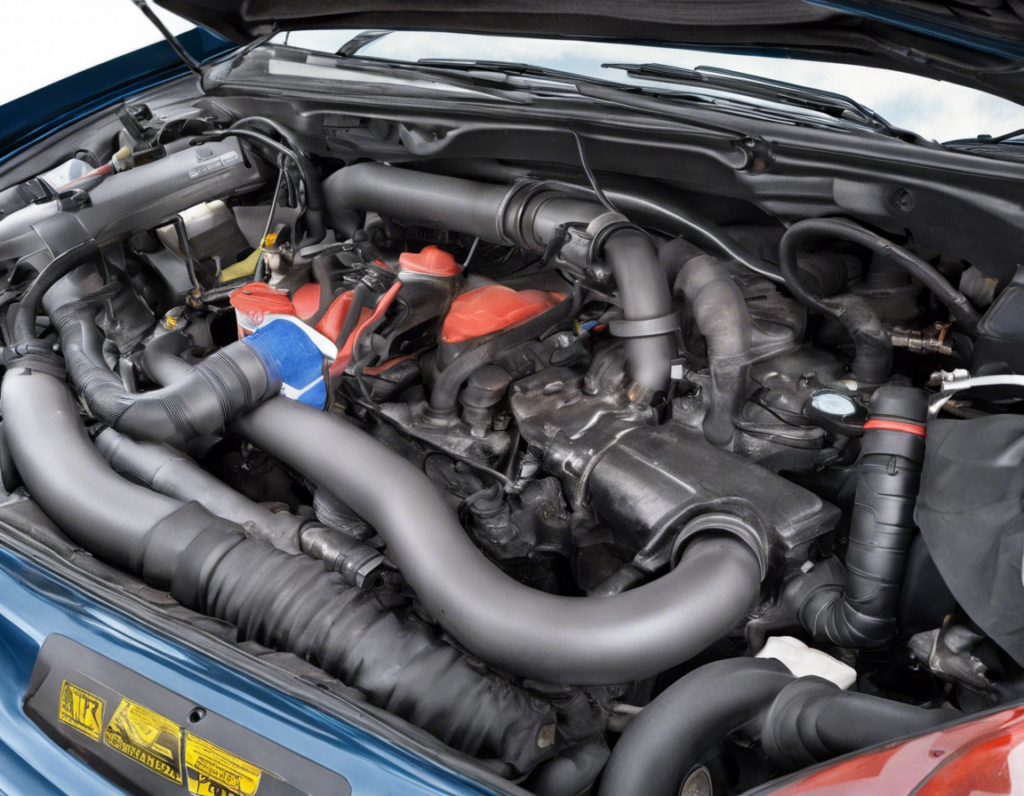When it comes to a car’s performance, one of the common issues that can arise is a vacuum leak. A vacuum leak can cause a variety of problems such as rough idle, reduced engine power, increased fuel consumption, and difficulty in starting the vehicle. In this article, we will delve into the details of troubleshooting a car vacuum leak and provide tips on how to identify and fix this issue.
What is a Vacuum Leak?
A vacuum leak occurs when there is an unintended opening in the engine’s intake system, resulting in excess air entering the engine. This disrupts the balance of air and fuel mixture required for proper combustion, leading to a range of performance issues in the vehicle.
Signs of a Vacuum Leak
Identifying a vacuum leak early on is crucial to prevent further damage to the engine. Here are some common signs that indicate a potential vacuum leak:
- Rough Idle: The engine may idle roughly or stall frequently when a vacuum leak is present.
- Hissing Sound: A hissing noise coming from the engine area can indicate a vacuum leak.
- Check Engine Light: The check engine light may illuminate due to the disruption in the air-fuel mixture.
- Decreased Performance: Reduced engine power and acceleration can be a result of a vacuum leak.
- Increased Fuel Consumption: An inefficient air-fuel mixture can lead to higher fuel consumption.
- Hard Starting: Difficulty in starting the vehicle can be a symptom of a vacuum leak.
How to Identify a Vacuum Leak
Finding the source of a vacuum leak can be a challenging task, but there are several methods to help pinpoint the issue:
- Visual Inspection: Check hoses, connections, and gaskets for any signs of wear, cracks, or loose connections.
- Listen for Hissing: With the engine running, listen for any hissing noises that might indicate a vacuum leak.
- Smoke Test: A smoke machine can help identify leaks by introducing smoke into the intake system and observing where it escapes.
- Use a Stethoscope: By using a stethoscope or a length of hose, you can listen for air leaks around the intake system.
Common Culprits of Vacuum Leaks
Several components in the engine can be potential sources of a vacuum leak. Here are common culprits to look out for:
- Vacuum Hoses: Cracked or disconnected vacuum hoses are a frequent cause of leaks.
- Intake Manifold Gasket: A worn or damaged intake manifold gasket can lead to a vacuum leak.
- Throttle Body Gasket: The gasket between the throttle body and the intake manifold can deteriorate over time.
- Brake Booster: A faulty diaphragm in the brake booster can also cause a vacuum leak.
- PCV Valve: A malfunctioning Positive Crankcase Ventilation (PCV) valve can introduce excess air into the engine.
Fixing a Vacuum Leak
Once you have identified the source of the vacuum leak, it is essential to address the issue promptly to prevent further damage. Here are some steps to help you fix a vacuum leak:
- Replace Vacuum Hoses: Replace any cracked or damaged vacuum hoses with new ones.
- Inspect Gaskets: Check and replace worn gaskets such as the intake manifold gasket or throttle body gasket.
- Brake Booster Diaphragm: If the brake booster is the source of the leak, consider replacing it.
- PCV Valve: Inspect the PCV valve and replace it if necessary.
- Professional Inspection: If you are unable to locate or fix the vacuum leak, seek help from a professional mechanic.
Prevention of Vacuum Leaks
To prevent vacuum leaks from occurring in the future, consider the following measures:
- Regular Maintenance: Schedule regular inspections to check for wear and tear on hoses and gaskets.
- Avoid Harsh Chemicals: Certain chemicals can degrade rubber components in the engine, leading to vacuum leaks.
- Proper Installation: Ensure that all components, such as hoses and gaskets, are correctly installed to prevent leaks.
- Use Quality Parts: Opt for high-quality vacuum hoses and gaskets to reduce the risk of premature failure.
Frequently Asked Questions (FAQs) about Car Vacuum Leaks
Q: Can a vacuum leak cause the check engine light to come on?
A: Yes, a vacuum leak can disrupt the air-fuel mixture and trigger the check engine light.
Q: How much does it cost to repair a vacuum leak?
A: The cost of repairing a vacuum leak can vary depending on the source of the leak and the extent of the damage.
Q: Can I drive with a vacuum leak?
A: It is not advisable to drive with a vacuum leak as it can lead to engine performance issues and potential damage.
Q: How long does it take to fix a vacuum leak?
A: The time to fix a vacuum leak depends on the complexity of the issue and the availability of replacement parts.
Q: Can a DIY enthusiast fix a vacuum leak?
A: While some vacuum leaks can be fixed by DIY enthusiasts, more complex issues may require professional intervention.
In conclusion, identifying and fixing a vacuum leak in your car is essential to maintain optimal engine performance. By understanding the signs, causes, and repair methods for vacuum leaks, you can address the issue promptly and prevent further damage to your vehicle. Remember to prioritize regular maintenance and timely repairs to keep your car running smoothly and efficiently.
